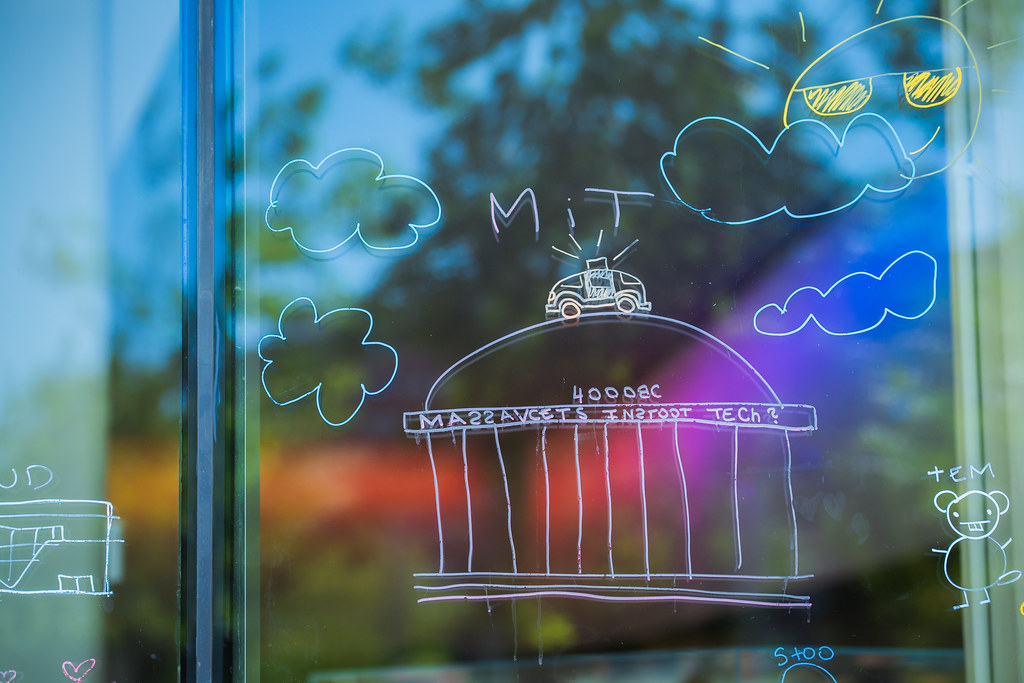Humanities Cultivation Fund Projects
About the Fund
The Humanities Cultivation Fund funds projects in the Humanities and Arts in SHASS. The fund awards $500k per year across all projects.
Learn more about the 2025 awardees, including a brief summary of the projects and the principal investigators, below.
Public Histories of MIT
Public Histories of MIT gathers several faculty-led initiatives from members of the History section – MIT and Slavery, China Comes to Tech, South Asia and the Institute, and From Samurai into Engineers – that collectively offer a nuanced and multilayered lens into the making of MIT from an intimately local but deeply connected global perspective. They place MIT’s story at the center of America’s history of freedom and unfreedom; modernization across the world facilitated by scientific and technological advancement; and the global alignment of MIT’s motto, mens et manus, with epoch-changing nation-building during the fraught “American century.”
Sana Aiyar, Associate Professor of History; Research Director, South Asia and the Institute: Transformative Connections
Bengali Harlem’s Past, Present, and Future: Community Outreach, Engagement, & Impact
This project will unfold over a year of sustained and directed community engagement, using public screenings and discussions of Bald’s documentary film In Search of Bengali Harlem as a vehicle for: a) bringing diverse audiences together; b) collectively processing and discussing the multi-racial histories and intergenerational trauma revealed in the film; c) assessing these histories’ connections to and relevance for a present-day U.S. marked by xenophobia, anti-Asian/anti-immigrant violence, and, at the same time, an increasing number of Black-South Asian families and individuals (notably including presidential candidate Kamala Harris); and d) documenting and making available additional stories/oral histories from members of the “Bengali Harlem” community.
Vivek Bald, Associate Professor, Comparative Media Studies/Writing
Spaces of Sound, Technology and Culture
The Sound Lab Unworking Group seeks to make connections across SHASS and beyond among people interested in using sound for teaching, research and performance. Our goal is to dissolve boundaries between disciplines, and to generate resonance and reverberations through immersive sonic explorations. This project is centered in the MIT Spatial Sound Lab, a community studio for making immersive audio, housed in W20-429. We are planning a series of meetups and events to bring together faculty, students and local artists for listening, discussion, and networking.
Ian Condry, Professor, Comparative Media Studies/Writing; MIT Spatial Sound Lab
Legacy: Understanding Residential Schools Through Indigenous Art
Legacy: Understanding Residential Schools Through Indigenous Art is a digital platform, research and teaching aide designed to facilitate access to Indigenous-created literature and media arts addressing the legacy of the American and Canadian Indian boarding school systems. The enriched database will include subject-specific descriptions of the resources, suggestions for further research, interviews with artists, and prototypes of lesson plans. The platform’s modular design will allow it to be responsive to the unique needs of a wide variety of users in interdisciplinary contexts, offering a streamlined user-friendly entry point to an understudied and rapidly transforming field.
Caitlyn Doyle, Lecturer, Literature
Building Climate Justice Infrastructures: A community co-designed research initiative
Focusing on interrelated case studies in the Pacific Northwest (PNW) – from efforts for salmon and orca recovery, to rising ocean temperatures, to contestations over the future of dams for hydropower, irrigation, and shipping – this field research collaboration examines emerging infrastructures for tackling climate change and building social justice. Our field research will encompass two elements: 1. Collaborative research with Indigenous-led environmental groups and community partners to address our research question, and 2. Writing a co-authored peer-reviewed journal article on the relation between killer whale conservation, climate change, and Indigenous sovereignty together with our community partners.
Bettina Stoetzer, Associate Professor, Anthropology
A New Play about Ethics and Technology: THERE ARE NO MORE SECRETS
My project is the writing and development of my new play THERE ARE NO MORE SECRETS. Inspired by the 2006 film THE LIVES OF OTHERS and Shoshana Zuboff’s book THE AGE OF SURVEILLANCE CAPITALISM, this new play deals with cybersecurity and investigates the unseen workforce that influences our contemporary lives in profound ways. Set in the near future, the play follows Marcia, a data collector for a government contractor who monitors people’s internet use. I will interview experts working in surveillance and cybersecurity. Once the script is complete, there will be a public presentation of the play.
Ken Urban, Senior Lecturer in Theater Arts and Director of Dramatic Writing
Seed Funding for Living Climate Futures Lab
As a group of faculty and researchers, we are developing a Living Climate Future Futures Lab at MIT. The goal of the Lab is three-fold: 1) to direct attention to how climate change plays out in everyday lives and settings; 2) to expand existing collaborative research partnerships with community environmental organizations, indigenous leaders, urban farmers, and others who are themselves addressing climate change; and 3) to foster collaborations that bridge the gap between STEM approaches to climate change and those in the humanities and social sciences.
Christine Walley, SHASS Dean’s Distinguished Professor and Program Head, Anthropology
